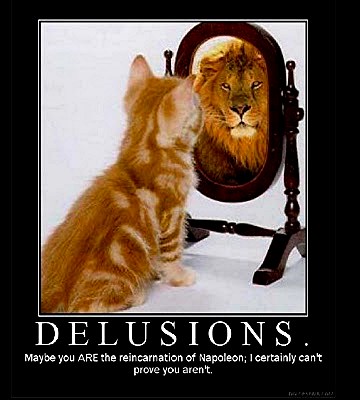
Re Fawson Estate 74 ETR (3d) 86 is an interesting Nova Scotia case to do with mental delusions that voided the deceased’s last will on the basis that she lacked testamentary capacity as her delusions towards her siblings , her next of kin, affected her reasoning.
The deceased had no children or spouse and executed her will disinheriting two of her brothers, being her next of kin.
One of the brother sought to have her will proved in solemn form and declared invalid on the basis that the testatrix lacked testamentary capacity when she executed her will.
The evidence was that the testatrix was generally speaking not obviously on or bizarre and in fact functioned in most respects with little impairment and continued to carry out the responsibilities of her job.
However when it came to her mother and her brothers, the testatrix had irrational beliefs which affected her interaction with her brothers which ultimately affected the dispositions in her will.
Basically the deceased refused to accept that their mother had dementia despite the of overwhelming evidence that she did, which resulted in very disruptive behavior on the part of the deceased daughter and an intense hatred of her brothers for opposing her,
These irrational beliefs resulted in the testatrix leaving nothing to her brothers in the will.
After a lengthy discussion about the burden of proof for testamentary capacity, suspicious circumstances, and delusions themselves, the court came to the conclusion that the deceased did in fact lacked testamentary capacity when it came to her brothers, being her next of kin, and thus the will was declared invalid.
Delusion
207 In Theobald on Wills (16th ed., London, Sweet & Maxwell, 2001), the authors set out the test for testamentary capacity in para. 3-02:
3-In order to have testamentary capacity a testator must understand:
(i) the effect of his wishes being carried out at his death, though it is not necessary that he should view his will with the eye of a lawyer and comprehend its provisions in their legal form;
(ii) the extent of the property of which he is disposing; and
(iii) the nature of the claims on him. The testator must have “a memory to recall the several persons who may be fitting objects of the testator’s bounty, and an understanding to comprehend their relationship to himself and their claims upon him” so that he can decide whether or not to give each of them any part of his property by his will.
208 The authors then consider the effect of delusions on testamentary capacity saying in the following paragraph:
3-03A delusion in the mind of a testator deprives him of testamentary capacity if the delusion influences, or is capable of influencing, the provisions of his will. But a delusion does not have this effect if it cannot have had any influence upon him in making his will.
A testator suffers from a delusion if he holds a belief on any subject which no rational person could hold, and which cannot be permanently eradicated from his mind by reasoning with him.
. . .
In practice it may be difficult to distinguish between grave misjudgment and delusion, particularly in relation to a testator’s assessment of the character of a possible beneficiary under his will….
A will is not invalid merely because in making it the testator is moved by capricious, frivolous, mean or even bad motives. If he has testamentary capacity he ‘may disinherit …his children, and leave his property to strangers to gratify his spite, or to charities to gratify his pride.
209 In Royal Trust Corp. of Canada v. Saunders[2006 CarswellOnt 3478(Ont. S.C.J.)], 2006 CanLII 19424, Blishen, J. said at para. 62:
[62] In order to affect testamentary capacity, a delusion must:
1. be one of ‘insanity’; and
2. be in relation to the testator’s property or expected beneficiaries.
and
199 In Keddy Estate, Re, 2002 CarswellNS 451(N.S. Prob. Ct.), Hall, J. referred to the burden of proof and suspicious circumstances at para. 25 as follows:
25 The profounder of a will has the burden of proving on a balance of probabilities, among other things, that the testator had the mental competence or capacity to make a will. Once due execution of the will is established, the profounder has the benefit of a rebuttal presumption that the testator had the capacity to make a will. Where ‘suspicious circumstances’ are present, however, the presumption may not be relied upon. The question then becomes, what constitutes suspicious circumstances and how do they affect proof of the mental capacity of the testator.
200 He then quoted the above passages from Vout v. Hay. That passage was also quoted by Murphy, J. in Willis Estate, Re, 2009 NSSC 231(N.S. S.C.). He said in para. 10:
[10]The Supreme Court noted, at para. 25 in Vout, that the suspicious circumstances which will rebut the presumption in favour of a will’s validity may relate to various issues. The Court identified (1) circumstances surrounding the preparation of the will, (2) circumstances tending to call into question the capacity of the testator, or (3) circumstances tending to show that the free will of the testator was overborne by acts of coercion or fraud.
It is the second category which is in issue here.
201 Murphy, J. continued in para. 16:
[16]To resolve the issues raised in this case, the Court must therefore determine:
(a) whether suspicious circumstances are present so that the initial presumption of the Second Will’s validity ceases to operate;
(b) if suspicious circumstances surrounding the preparation of that will are established, whether the Respondents as proponents of the Second Will have met their civil burden to establish execution;
(c) if the Respondents establish that Jams Willis executed the Second Will but circumstances raise a suspicion that the testator’s free will was overborne by coercion, whether the Applicant who attacks the Second Will satisfies the burden to establish undue influence.




